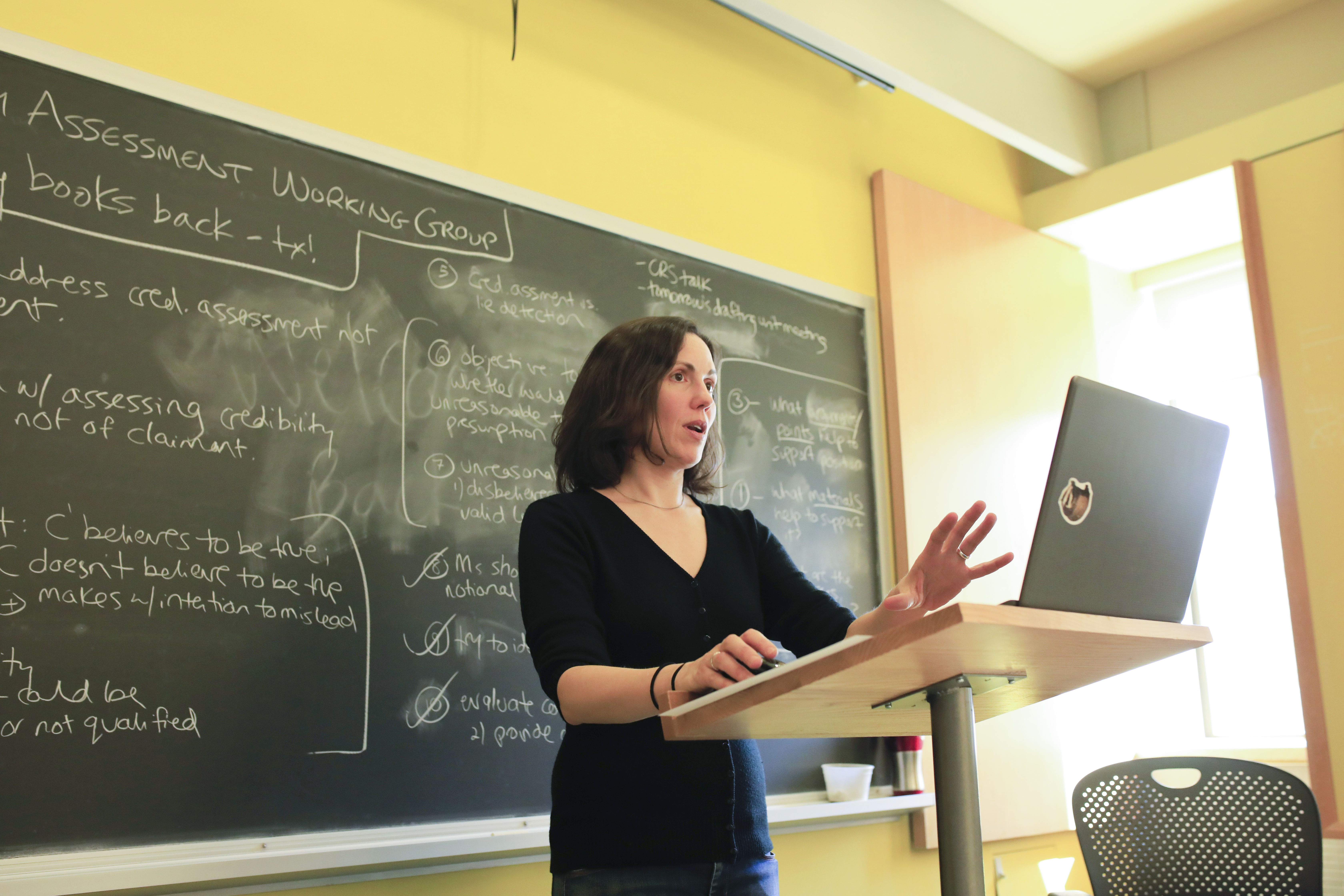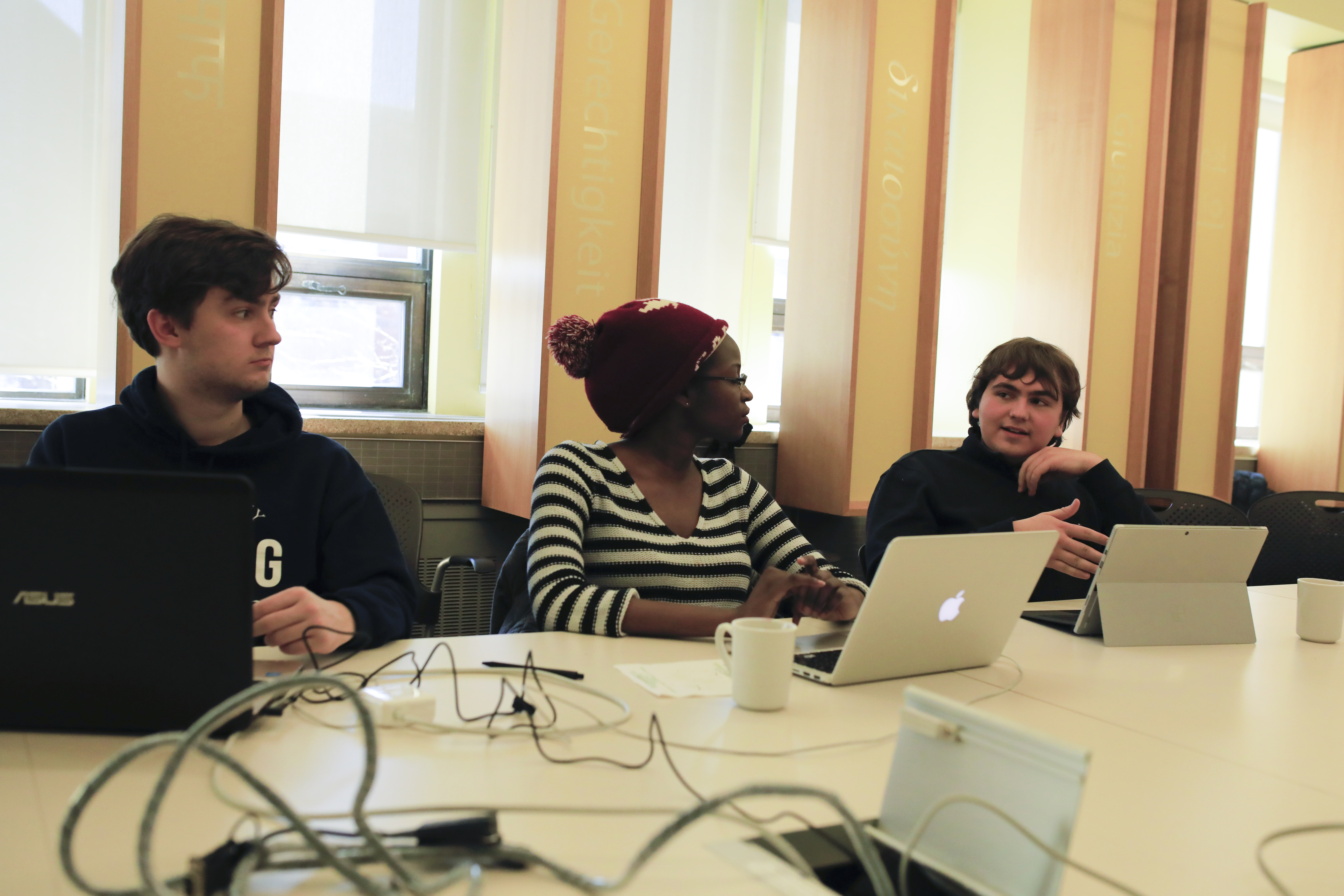Under the direction of Hilary Evans Cameron, Postdoctoral Associate at the Centre for Ethics, undergraduate students from Trinity College’s Ethics, Society & Law program, along with students from Osgoode Hall Law School, came together at the Centre for Ethics for the final stage of a year-long research project. The Osgoode-Trinity Credibility Assessment Working Group set out to produce guidelines to help Refugee Board members make better decisions about refugee claimants’ credibility. Policy documents in Canada and abroad warn of the dangers of rejecting a claimant’s evidence based on certain kinds of factors (the claimant’s demeanour, memory for dates, minor inconsistencies, etc.). Rather than repeat these important warnings, the Osgoode-Trinity Credibility Assessment Guidelines propose a new way of looking at credibility assessment and its role in a refugee hearing, drawing on recent cognitive scientific research. These Guidelines, presented to the Immigration and Refugee Board in April 2017, use a novel evidence-based framework that suggests that Board members should approach this task with a new set of aims and processes.
Centre for Ethics, University of Toronto
Where conversations about ethics happen.



